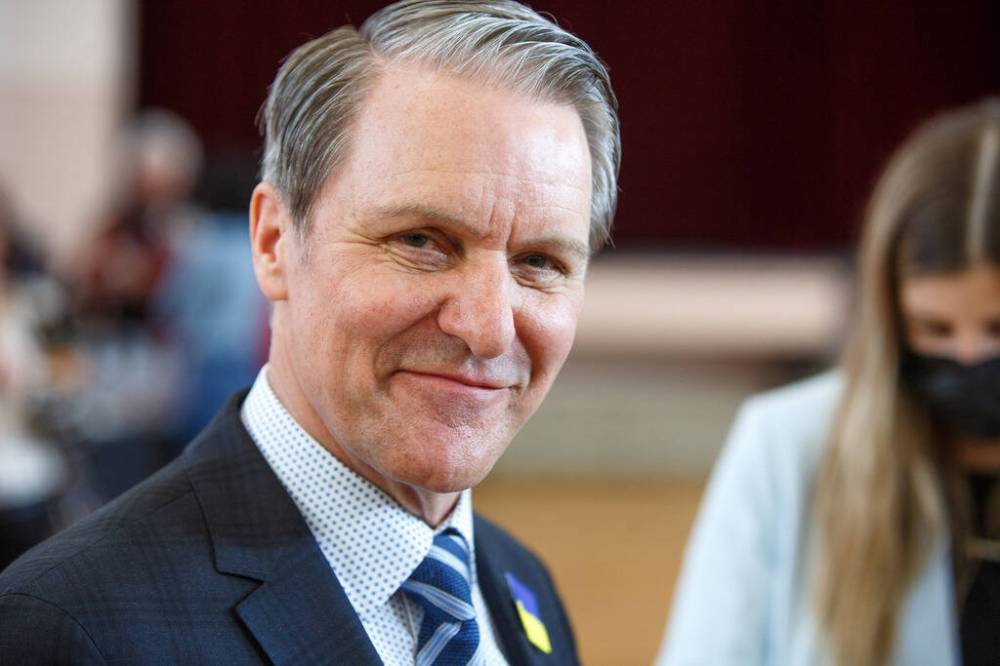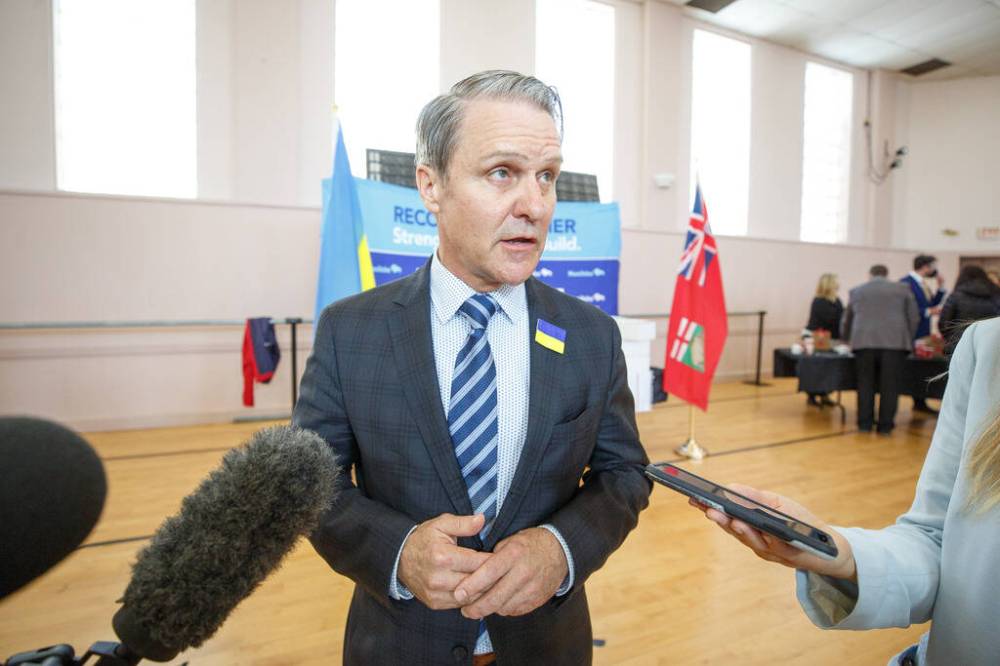Manitoba lags as jobs numbers improve
Read this article for free:
or
Already have an account? Log in here »
To continue reading, please subscribe:
Monthly Digital Subscription
$0 for the first 4 weeks*
- Enjoy unlimited reading on winnipegfreepress.com
- Read the E-Edition, our digital replica newspaper
- Access News Break, our award-winning app
- Play interactive puzzles
*No charge for 4 weeks then price increases to the regular rate of $19.00 plus GST every four weeks. Offer available to new and qualified returning subscribers only. Cancel any time.
Monthly Digital Subscription
$4.75/week*
- Enjoy unlimited reading on winnipegfreepress.com
- Read the E-Edition, our digital replica newspaper
- Access News Break, our award-winning app
- Play interactive puzzles
*Billed as $19 plus GST every four weeks. Cancel any time.
To continue reading, please subscribe:
Add Free Press access to your Brandon Sun subscription for only an additional
$1 for the first 4 weeks*
*Your next subscription payment will increase by $1.00 and you will be charged $16.99 plus GST for four weeks. After four weeks, your payment will increase to $23.99 plus GST every four weeks.
Read unlimited articles for free today:
or
Already have an account? Log in here »
Hey there, time traveller!
This article was published 11/04/2022 (1338 days ago), so information in it may no longer be current.
The provincial budget introduced by Finance Minister Cameron Friesen will offer the ruling Progressive Conservative party a chance to bring this province back into the mainstream of Canadian employment growth. After six years of PC rule, the province’s job numbers are lagging behind the rest of Canada.
Management of health services is the most troublesome political issue for the ruling party because of its poor performance during the COVID-19 pandemic upsurges in 2020 and 2021. Failure to expand employment, however, poses a further challenge to the party’s theories about the proper role of government.
Budgetary attention to health services may help the voting public forget about the ruling group’s disappointments in that field. The need to attract and hold employers and workers to the province, however, requires attention to other growing economic sectors.

Last week’s Labour Force Survey from Statistics Canada showed employment continued expanding in Prince Edward Island, New Brunswick, Quebec and Ontario in March, continuing the job growth that followed decline of COVID-19 prevalence and easing of restrictions on business operations and public gatherings.
Nationally, total employment rose by 73,000 jobs, or 0.4 per cent, in March compared to the preceding month. The national unemployment rate declined by 0.2 percentage points to 5.3 per cent, the lowest rate on record since comparable data became available in 1976.
Manitoba, Saskatchewan and Newfoundland, however, bucked the national trend and showed job losses. The remaining provinces, including Alberta and British Columbia, showed little change in jobs numbers.
Manitoba’s current government had been counting on the lifting of public-health restrictions to restore business activity and employment. Removal of mask requirements and vaccine mandates apparently had the desired effect in Canada’s largest provinces. In Manitoba, however, it didn’t work.
Removal of mask requirements and vaccine mandates apparently had the desired effect in Canada’s largest provinces. In Manitoba, however, it didn’t work.
Total numbers of people employed dropped by 4,200 in Manitoba, 4,500 in Saskatchewan and 2,900 in Newfoundland compared to the preceding month. Average hourly wages rose by 3.4 per cent compared to a year earlier in Canada as a whole. In Manitoba, the corresponding wage rise figure was 0.8 per cent. In Alberta the average wage rise was 1.4 per cent.
These disappointing results should inspire some careful thought in Conservative circles. In a phase of post-pandemic recovery, it may not be enough for a provincial government merely to curtail public services and shift tax burdens. Positive encouragement for selected economic sectors may also be necessary.
Nationally, StatCan found wage growth has been most pronounced in the high-wage professional, scientific and technical services industries. Numbers of employees and rates of pay grew sharply in that sector. To keep pace with the rest of the country, Manitoba will have to attract and keep its share of professionals, scientists and technical workers.
Nationally, StatCan found wage growth has been most pronounced in the high-wage professional, scientific and technical services industries. Numbers of employees and rates of pay grew sharply in that sector.
Premier Heather Stefanson, who came to power in November promising to consult Manitobans more than former premier Brian Pallister did before her, should consult with Manitoba’s professional, scientific and technical industries to find out how she might make Manitoba more attractive to those highly skilled workers.
She should recognize that Manitoba is in competition with other provinces and other countries to attract and keep the well-paid workers who pay the taxes to finance improvement of health services and all other government services. Without their economic support, health services will continue to deteriorate and those mobile workers will keep drifting off to greener pastures in other provinces.

History
Updated on Monday, April 11, 2022 9:35 PM CDT: Fixes typo.







